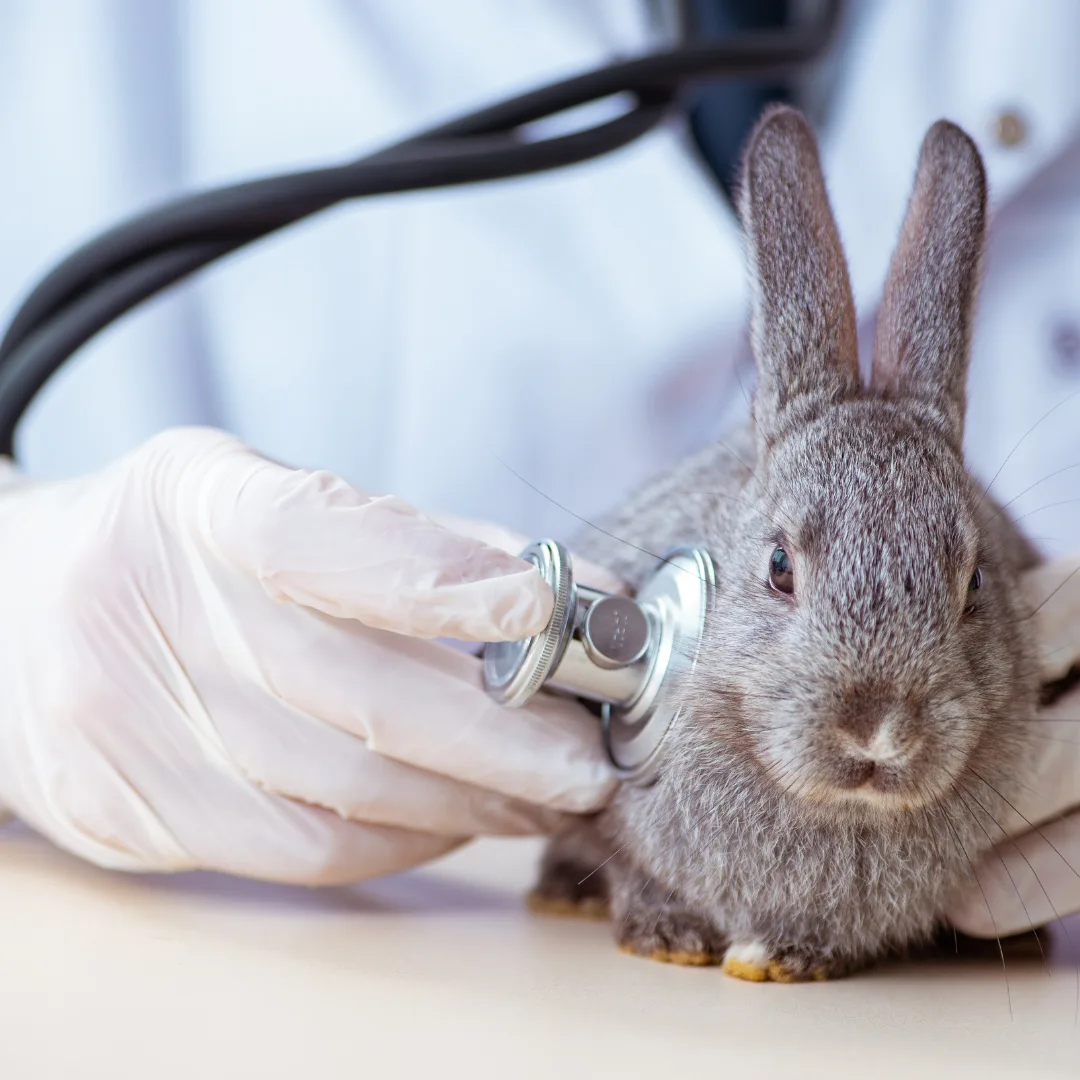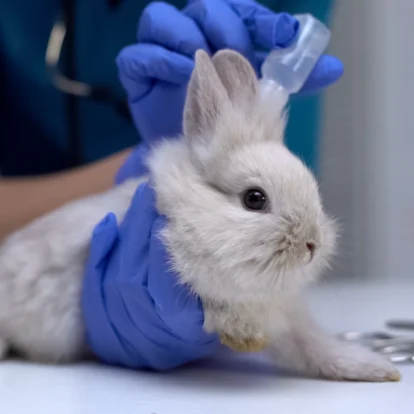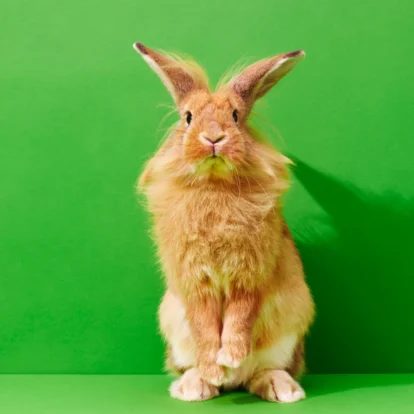Table of Contents
Introduction
Hey, fellow rabbit enthusiasts! 🐰 Have you ever wondered, “Can rabbits vomit?” Well, you’re not alone! This quirky question led me down a rabbit hole (pun intended!) of discovery about our fluffy friends’ digestive workings. With my trio of hoppy companions always keeping me on my toes, I’ve had my fair share of anxious moments concerning what goes into (and doesn’t come out of) their little tummies.
Rabbit owners, like you and me, often compare our bunnies to other animals. Maybe you’ve seen a dog scoff down something it shouldn’t, only to bring it back up a short while later. But the story is quite different when it comes to our long-eared pals. Their entire digestive system is uniquely designed, setting them apart not just from dogs but also from other pets and even from us humans.
Unlike guinea pigs, rabbits have a weak diaphragm and an incredibly one-way digestive system, which means their ability to deal with an upset stomach doesn’t include vomiting.
In this post, I’ll share insights from my adventures with my three rascals and a deep dive into why “Can rabbits vomit?” is more complex than it seems. We’ll explore the intricacies of a rabbit’s stomach and why their unique digestive system, while efficient in so many ways, comes with its own set of precautions we, as owners, must be aware of.
Whether it’s figuring out the best hay for their diet to prevent any tummy troubles or knowing what to do if your bunny seems to choke, I’ve gathered all the must-know info to keep your fur babies happy, healthy, and free of digestive woes.
Stay tuned as we get to the bottom of our fluffy friends’ tummies, learning how to ensure they remain the energetic, bouncy balls of fur we love so much! 🌈
Can Rabbits Vomit?
Short answer: Nope! Let me explain.
Unlike numerous mammalian species that can rid themselves of unwanted stomach contents through vomiting, our fluffy friends are in a unique pickle. You see, due to their one-way digestive system, rabbits cannot vomit, no matter how much they might need to. This quirk puts them in the same boat as their distant relatives, horses, and not-so-distant rodents vomit issue. But why is this the case, you ask?
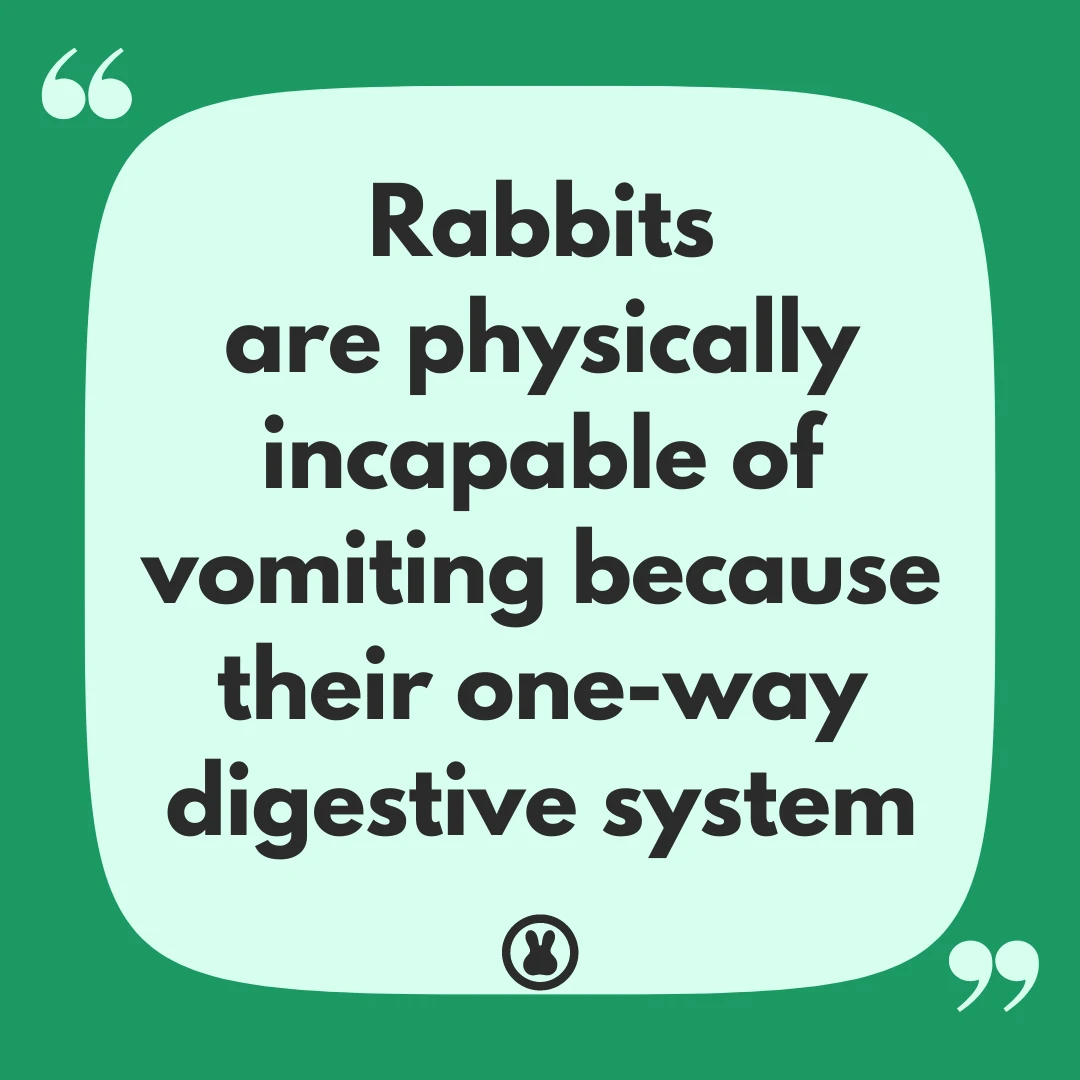
Well, it all boils down to their anatomy. Rabbits, by their nature, are physically incapable of vomiting because their stomach is built differently from humans and many other mammals. Their strong esophagus muscles are designed to only allow food to go down, not up. Plus, their mighty throat muscles don’t give up their contents easily. This means when gas or anything else builds up, it has nowhere to go but through the entire digestive system. Imagine the worry we feel when our pet rabbits seem under the weather since they can’t just upchuck whatever’s bothering them as we can!
But there’s a silver lining to this. Their inability to vomit is actually a testament to how efficient their digestive systems are, designed to keep food moving and nutrients absorbing constantly. Nonetheless, this also means we must be extra vigilant about what we feed them to prevent blockages or gas that can’t easily be relieved.
In my experience, the key to keeping my group of rabbits on a diet high in fiber (hello, hay! 👋🌿) and keeping a close eye on them for any signs of discomfort has been ensuring they stick to it. And remember, if there’s ever a point of worry, a quick trip to the vet can provide peace of mind.
The Pros and Cons of a One-Way Digestive System
Who thought we’d be chatting about the inside workings of our fluffy friends’ tummies, right? But here we are, about to deep-dive into the fascinating world of a one-way digestive system. 🐰💫 It’s like going on a one-way road trip through the countryside – scenic views and efficient pathways but with limited exits. And, just like any road trip, there are ups and downs.
Upside 🌈
Efficient Nutrient Absorption
The beauty of this system lies in its efficiency. Rabbit’s inability to reverse their dining decisions means their bodies are champions at nutrient absorption. Every bite of hay and every nibble of carrot goes through a meticulous process, ensuring their little bodies squeeze out every bit of goodness. Think of it as their intestines holding onto the nutrients with all their might, refusing to let go until every last drop is absorbed. It’s comparative behavioral gold when you look at rodents or even laboratory rats; rabbits take the cake for making the most of their munchies. 🍰
A Tailor-Made Diet for Healthy Hearts ❤️
With their specialized digestive system, Rabbits inherently gravitate towards a heart-healthy diet. High in fiber and low in fat, their preferred munchies—think leafy greens and fibrous hay—work wonders for their cardiovascular health. It’s as if nature designed them to be the epitome of heart health on four legs. Watching them crunch away contentedly can remind us to consider what we’re putting on our plates.
Downside ⛈
Potential Health Risks
However, every rose has its thorns, and for our long-eared friends, the risks come with this one-way street. Since the highway doesn’t go in reverse, it becomes a serious issue when something like gas builds up or gasps if they ingest something they shouldn’t (I’m looking at you, rat poison).
Their esophagus is like the bouncer that only lets guests in, not out. This means rabbits can’t vomit to quickly expel what’s troubling them, making things like GI stasis a real threat. It’s a tricky situation that could have pet owners running to the vet faster than a rabbit darting back to its burrow at dawn.
The Moody Gut Blues 🌀
Just when you thought the plot couldn’t thicken anymore, enter our floppy-eared companions’ sensitive and sometimes moody gut. Their digestive system, so efficient yet so finicky, can easily be thrown off kilter by the slightest change in diet or routine. And when their gut gets the blues, it’s not just a simple case of feeling under the weather. It can lead to severe conditions like diarrhea or, on the flip side, constipation. Imagine the discomfort! But fear not. We can keep their tummies singing a happy tune with attentive care and a steady, suitable diet.
Preventing Rabbit Digestive Issues
Ensuring our bunny friends don’t run into tummy troubles starts with a dash of care and knowledge.
First and foremost, it’s like navigating a minefield when it comes to what they eat! 🌿 Avoiding choking hazards and steering clear of poisonous plants is the name of the game.
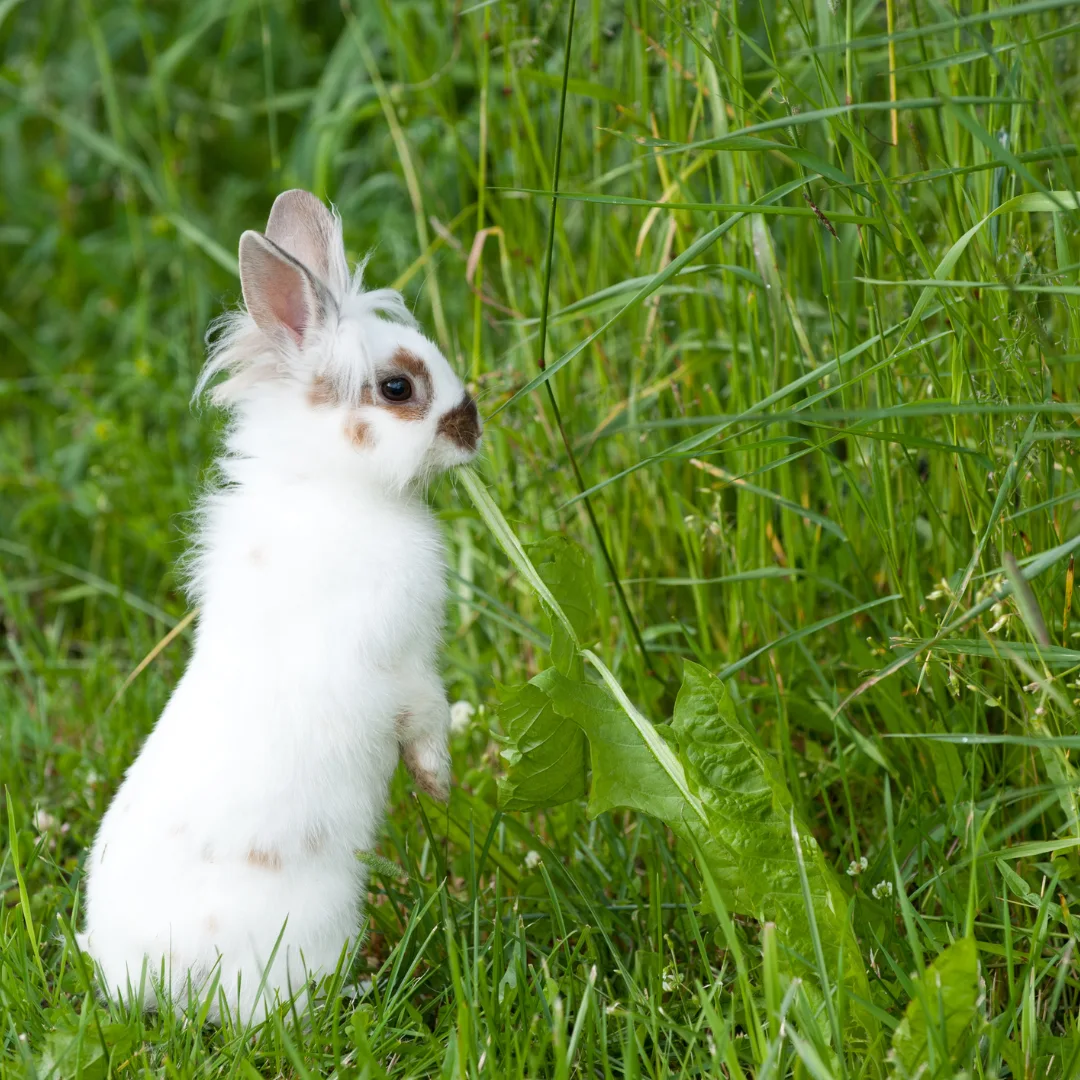
Avoid Potentially Harmful Food
From personal experience, some foods seem harmless but can be pretty dangerous. For instance, never in a million rabbit jumps would I have thought that avocado could be a no-no—it’s like kryptonite to their delicate gastrointestinal tract 🥑. And those cute little pits in fruits? Total choking hazards.
Regular Grooming
Also, who knew a bunny could be hairy, inside and out? Regular grooming is more than just keeping them looking their dapper best—it’s crucial to prevent sneaky hairballs that can clog their system. Investing in the best brush for your bunny can make grooming sessions a breeze. It’s a bonding time we both enjoy, and it significantly reduces the risk of hairballs lodging somewhere they shouldn’t in their little stomachs.
Regular Ver Visits
Now, on to the not-so-glamorous part of bunny care—vet visits and wellness checks. Honestly, they’re the unsung heroes in the world of rabbit parenting. Keeping up with regular check-ups has been a game-changer for us. The veterinarian can spot issues that humans might miss, from checking if they’re passing gas properly (a big deal since they can’t expel it as we do!) to ensuring their gut is working like a well-oiled machine.
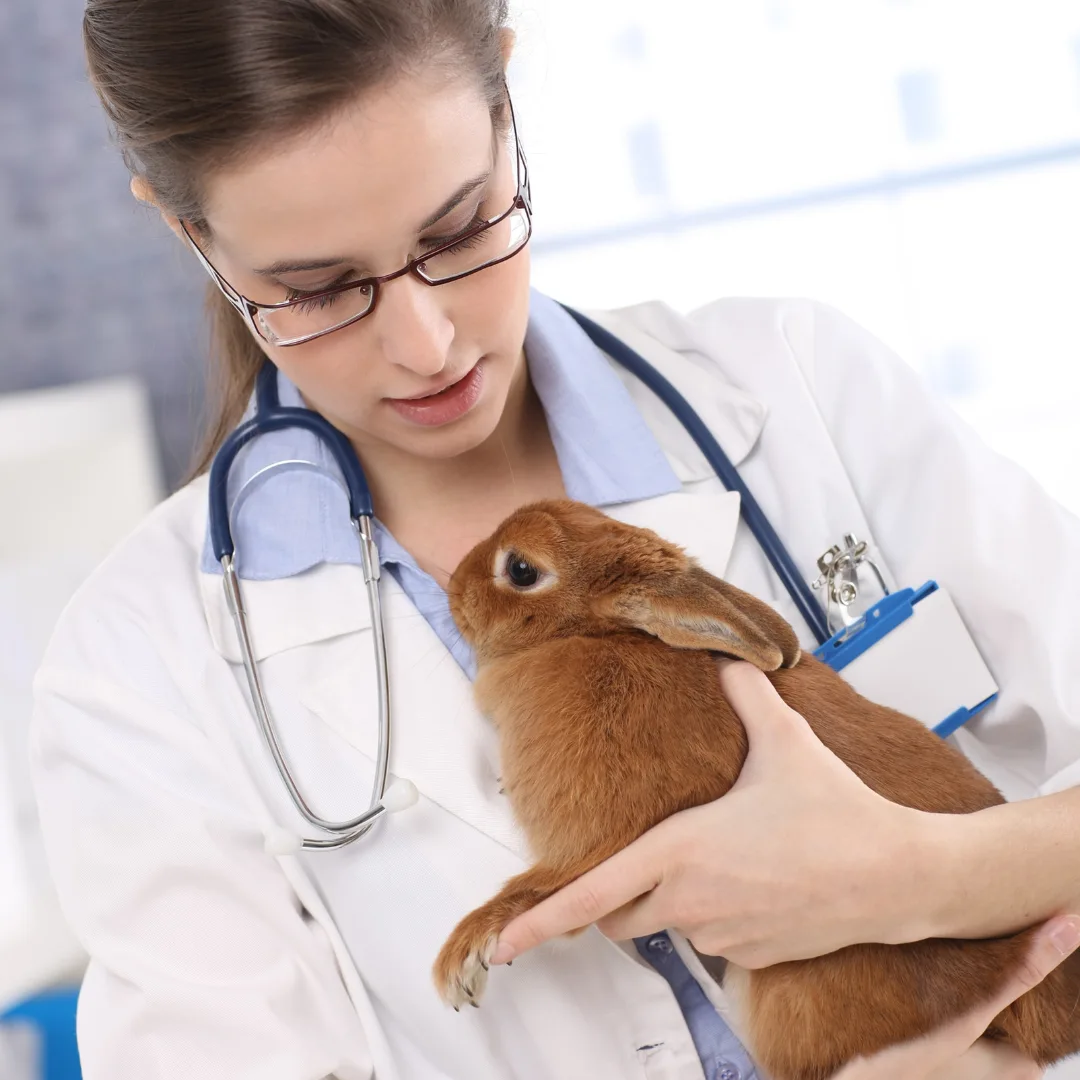
Diet: Fresh Water and Good Quality Hay
Navigating through the dos and don’ts of rabbit care, I’ve also learned the importance of simple things—like ensuring they have constant access to fresh water and hay, which helps keep their digestion smooth. Their diet should mainly consist of hay, complemented by high-quality pellets and the occasional fresh (and safe) veggies. Keep the sugary treats, like apples or carrots, to a minimum to avoid upset stomachs.
Clean Living Area
Ah, and lest I forget—creating a little haven for them to munch and crunch to their hearts’ content is so important. Think of it as their own rabbit meadows, where they can eat, play, and do their bunny things safely, away from any potential harm. Keeping their living area clean, especially the rabbit litter, helps prevent unwanted digestive issues.
Ultimately, our fluffy companions rely on us to keep their little bodies running smoothly. We can ensure their stomachs and hearts are full with a sprinkle of care, a dash of vigilance 👀, and lots of love. 🐰💕
What to Do If Your Rabbit Chokes
Recognizing the Signs of Choking in Rabbits 🚨
Recognizing the signs of choking in our furry friends is crucial. Unlike most mammals, rabbits can’t vomit, making any obstruction in their throat a severe issue that can quickly escalate. Imagine this: your bunny is munching away happily one moment, and the next, they start panicking and showing signs of distress. What’s going on?
They might be choking. You might hear strange noises, see them pawing at their mouth, or notice their head oddly positioned as they attempt to dislodge whatever’s stuck. Other symptoms to watch out for include drooling, difficulty breathing, or inability to swallow.
Awareness of these subtle (and not-so-subtle) signs can be a game-changer in preventing a scare from turning into a serious situation.
First-Aid for Choking Rabbits: Step-by-Step 🐰💓
When you suspect your bunny buddy is choking, the first thing to remember is to take deep breaths and stay calm. Your rabbit is already scared, and they need you to be their rock. Here’s the step-by-step breakdown:
- Try to Calm Your Rabbit: 🙏 Gently wrap them in a soft towel to minimize movement. This also helps you to safely examine their mouth without the risk of being bitten in panic.
- Inspect the Mouth: Use a flashlight to look inside their mouth. If you see the object and can easily remove it with tweezers without causing further distress or injury, gently do so. Avoid poking around blindly, though, as it might push the object further down.
- Liquid Foods: If the object isn’t visible and your rabbit is still conscious, offering liquid food might help. Sometimes, the liquid can help move the stuck item into the stomach. Remember, this method is suitable only when there’s no risk of the rabbit inhaling the liquid.
Heimlich Maneuver
If steps 1 to 3 don’t work, applying the Heimlich maneuver for rabbits, though as a last resort, can be a lifesaver. With your rabbit’s head gently tilted downwards, place your hands around their ribcage and give a gentle, quick squeeze. Be very careful; rabbits are delicate animals, and too much force can harm them.
In the video below, Dr. Dana Krempels teaches extreme emergency techniques, like the Heimlich Maneuver, using a toy rabbit. The video is part of the “Emergency Care” seminar from 2014. Very insightful.
Rush to a Vet
If the object remains stuck or your rabbit exhibits other symptoms of distress (like going into gi stasis, being unable to eat, or showing signs of pain), get to a vet immediately.
Throughout this process, talk to your rabbit soothingly; they understand more than we give them credit for. 🌈 And remember, keeping small, potentially dangerous items out of reach can prevent choking hazards in the first place. Safety first!
Choking is frightening, but you’re better prepared to help your fur baby in a pinch with these steps. Always keep a close eye on what they’re nibbling and ensure their play area is as safe as can be. Our bunnies depend on us, so let’s ensure we’re up to the task! 🐾💖
Conclusion
Can rabbits vomit? No, they absolutely can’t.
Navigating the world of pet rabbits with their one-way systems is both a joy and a responsibility. Morning checks, observing their behavior, and ensuring they’re not nibbling on anything unsavory become part of our routine. It’s all worth it when you see them hopping about, happy and healthy, using those tiny paws to stuff their faces with hay. 🌾💖
Remember, a well-informed bunny buddy is a bunny’s best friend!
Related Questions
Can Rabbits Fart?
Well, in the grand scheme of their digestive uniqueness, yes, they can, and it’s a natural way for them to relieve gas since vomiting is off the table. And they fart a lot, to be honest. What they absolutely can’t do is cough up anything stuck in their throat or mouth. This makes things like rabbit choking a pet parent’s nightmare since they can’t just cough up the obstruction with a few loud hacks.

